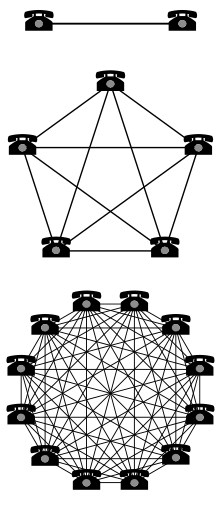Google Summer of Code opportunities in JavaScript, HTML5, jQuery and WebRTC
WebRTC is one of the highlights of HTML5. The latest stable releases of Google Chrome (including the free Chromium browser) and Firefox include support for this technology and although the specifications are still being finalized, this is the time when developers can start preparing the first generation of web-apps that will define the future of this technology.

The JSCommunicator project aims to make it easy to integrate WebRTC into existing web applications.
It provides a high-level API on top of the popular JsSIP SIP stack for JavaScript. The JSCommunicator API provides basic dialing and call control features, allowing you to focus on the application level rather than the SIP level. The configuration file suggests many possible ways it can be deployed and customized without any coding at all.
The popular DruCall module for the Drupal CMS provides a practical demonstration of how JSCommunicator can be embedded in other products, multiplying the power of WebRTC for millions of other web developers, bloggers, online shops and other sites. This part of the DruCall source code provides a practical demonstration of how JSCommunicator integrates with PHP and this demonstrates how we extract the parameters from PHP in the JavaScript and convert them to the JSCommunicator configuration object.
Practical deployments of WebRTC today
The student selected for this GSoC project will focus on two practical, real-world deployments of JSCommunicator:
- The popular new Debian Developer WebRTC portal at https://rtc.debian.org
- The FreePhoneBox.net
It is particularly important to think about ways to make this technology useful for the Debian Developer community in the pursuit of Debian's work.
Not just for Debian
A communication product is not much use if there is nobody to talk to.
The optimal outcome of this project may involve helping two or three additional free software communities to build portals similar to https://rtc.debian.org so that they can interact with Debian and each other using Federated SIP. As Metcalfe's Law explains, this outcome would be a win-win situation for everybody.

Mentors needed too
The more diverse the mentoring community, the more positive outcomes we can achieve with this project.
If you would like to be part of a mentoring team for this project, please email me and subscribe to the Debian SOC co-ordination email list. There is no strict requirement for all mentors in the team to be full Debian Developers and emerging technology like this clearly needs people with strengths in a range of different areas.
Get started now
For general ideas about getting selected for Google Summer of Code, please see the comments at the bottom of my earlier blog post about Ganglia projects
For this project in WebRTC in particular, please:
- Review the project brief on the Debian wiki
- Discuss your ideas on the JsSIP Google group
- Send an email to introduce yourself on the Debian SOC co-ordination email list and give a link to your post on the JsSIP list
- You must complete a coding test. Please see the open bug list for JSCommunicator, complete one of these tasks and submit a pull request on Github. Please send an email to the JsSIP Google group to discuss your pull request.
- Explain what features you would create during the summer
- Explain which other tools or libraries you would like to use
- Give examples of previous work you have done with HTML and JavaScript
- Explain how your participation will benefit Debian, free software and the wider world. Give some practical examples.
- If you are interested in other JavaScript and jQuery opportunities for GSoC 2014, please also read more about the web components in the Ganglia project - if you apply for both Debian and Ganglia, you only have to complete one coding test as part of your application.